Reservoir goats
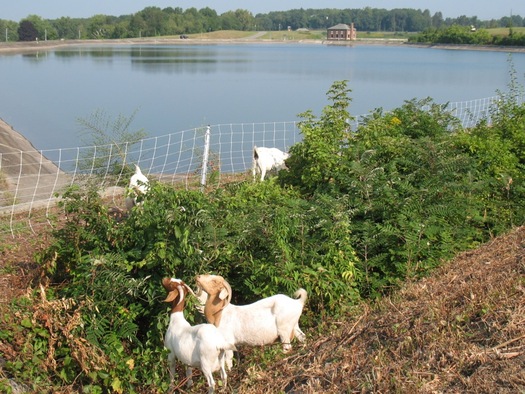
They're working.
It can be hard to hire a contractor. Sorting through all the various options. Coordinating calls and appointments for estimates. Trying to pick the best person.
And what if, as the Albany Water Board recently decided, the best person for the job is... a goat?
The problem that needed fixing
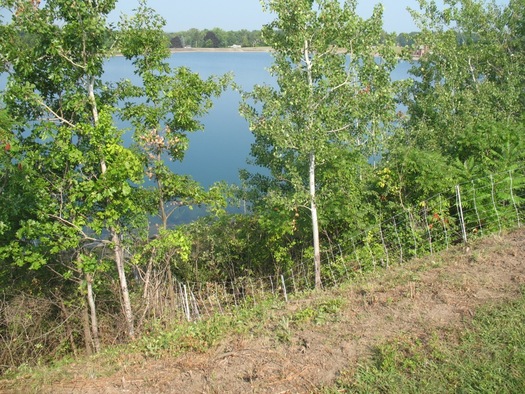
Albany's Loudonville Reservoir is tucked between Albany's northern city line and the Colonie hamlet of Loudonville. Most of the non-water area of the property is covered in grass. But there's a steep slope right against the eastern edge of the reservoir -- and that slope has become overgrown with brush and trees.
The Albany Water Board needs it cleared to help preserve water quality at the reservoir. The trees can drop leaves and pollen into the water. And the underbrush provides cover for small animals like woodchucks, who can gain access to the water and leave behind droppings.
On Wednesday morning, five goats were deployed to chomp on the brush and clear it out.
Photos
There are a handful of photos above in large format from Wednesday's release of the goats -- click or scroll all the way up.
Why goats?
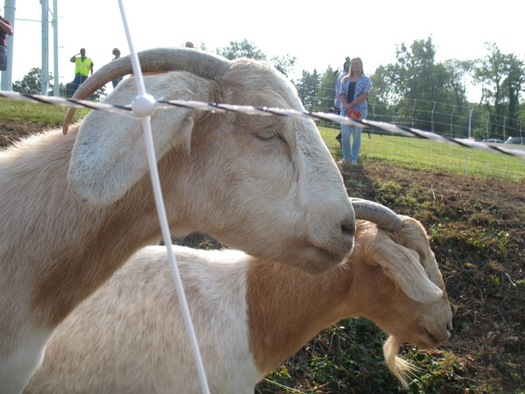
So, why did the city end up hiring a small herd of goats for the job? The short answer is that it just ended up being the easiest option.
The Albany Water Board's forester, Amy Walsh, said they had reached out to a number of contractors about potentially clearing the trees and brush from the side of the reservoir. But none of the contractors seemed particularly keen on taking up the job, because of the difficultly involved with working on the steep hill and the requirement that none of the material end up in the reservoir's water.
"When we had difficulty finding anybody who could assist with traditional means -- whether it was just unsafe, or the cost, or just didn't quite have the right machinery, then I was like, well, this would be a really simple, environmentally friendly, safe, sustainable way," said Walsh. "So this is nice, because our water stays intact and there's not much we have to do. [The goats] take care of it in a safe way."
So far the water board has paid $3,300 for a feasibility study and costs such as fencing. And it's paying Heather Ridge Farm in Preston Hollow $3,900 to rent the goats this year. Walsh said it was hard to compare those costs to that of a traditional contractor because the water board couldn't even get a quote for the job.
The goats will be at the reservoir for the next four weeks in what Walsh described as "pretty intense" initial pass aimed at clearing out most of the brush and many of the low-hanging tree branches. If it works as planned, she said the water board is hoping to rotate goats through the property a few weeks at time next year to keep the brush down. And she said the water board is eyeing other properties it manages for potential goat grounds clearing.
About the goats
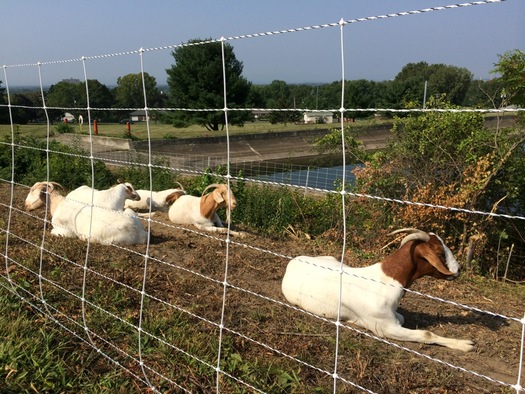
The five boer goats from Heather Ridge Farm -- Blondie, Butter, Cleopatra, Minnie, and Toast -- are all female. They're breeding stock for Heather Ridge, which raises goats for meat. Owner Carol Clement says the goats had kids this past spring and recently weaned their offspring -- so they're hungry. While we watched the goats munch on leaves Wednesday morning, she predicted to us that they'd have all the small underbrush gone in a few days.
The goats are confined to an area surrounding the targeted brush-removal zone by an electrified fence. (Clement told us goats are very clever and require good fencing.) The fence stops the goats from moving past a drainage ditch alongside the reservoir, so they (and their poop) can't reach the water.
On the farm she said their herd of 25 goats is usually accompanied by guard llamas to ward off predators such as coyotes. But the Loudonville Reservoir has a 10-foot fence surrounding it, so she said they felt OK going llama-less in this situation. (We would have voted for the llama... because it's a llama, obviously.)
Said Clement of the arrangement with the water board, with a smile: "This is my excuse to get more [goats]. I love goats."
The Loudonville Reservoir

Located alongside Albany Shaker Road, the reservoir is probably a place a lot of people have driven past -- but never actually seen. The fence around it, along with the way the reservoir sits on the hill, prevents a good view of it.
The reservoir was built during the 1920s and 30s as a Works Progress Administration project (here are more construction photos). It's a staging area for more than 200 million gallons of finished drinking water held in three concrete basins. Amy Walsh, the water board's forester, told us the reservoir's volume is worth about 10 days of drinking water for the city.
The water stored in the Loudonville Reservoir is initially collected at the city's Alcove Reservoir in Coeymans. The water at Loudonville is continuously used and replaced -- it's treated with ultraviolet light and chlorine before being sent to taps. (Not all city water makes its way through the Loudonville reservoir on its way from Coeymans.) And the facility is under 24-hour surveillance.
By the way: Why does the Albany Water Board have a forester? Well, the water board has about 6,000 acres of forested land, mostly around the Alcove and Basic reservoirs in the Coeymans. And the health of that forested land has an effect on the quality of the water in the reservoirs.
As Amy Walsh explained to us: "Forests are pretty integral in the way they help to initially filter the water, especially in a heavily forested watershed like in the Alcove, so it doesn't take a lot of treatment."
____
Earlier on AOA:
+ Sheep eat the baaaaad
+ Cast iron and hollowed-out tree trunks
Hi there. Comments have been closed for this item. Still have something to say? Contact us.
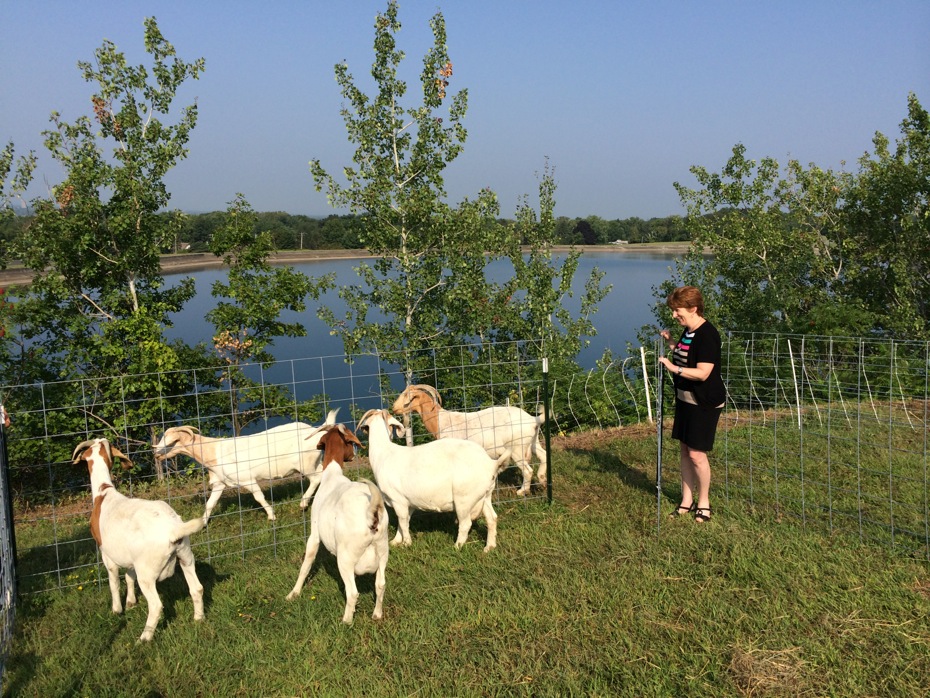

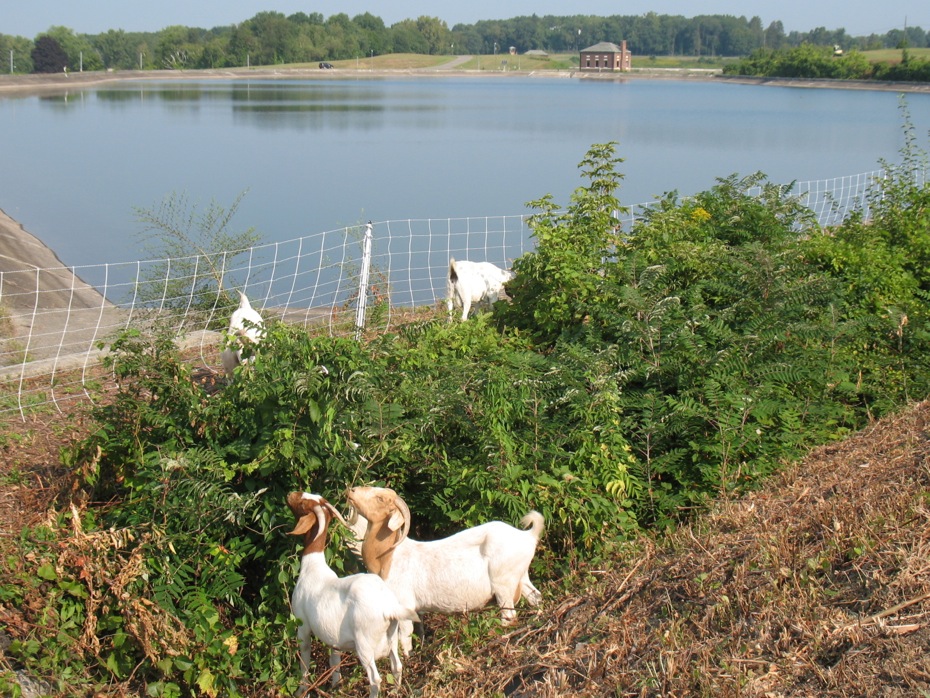
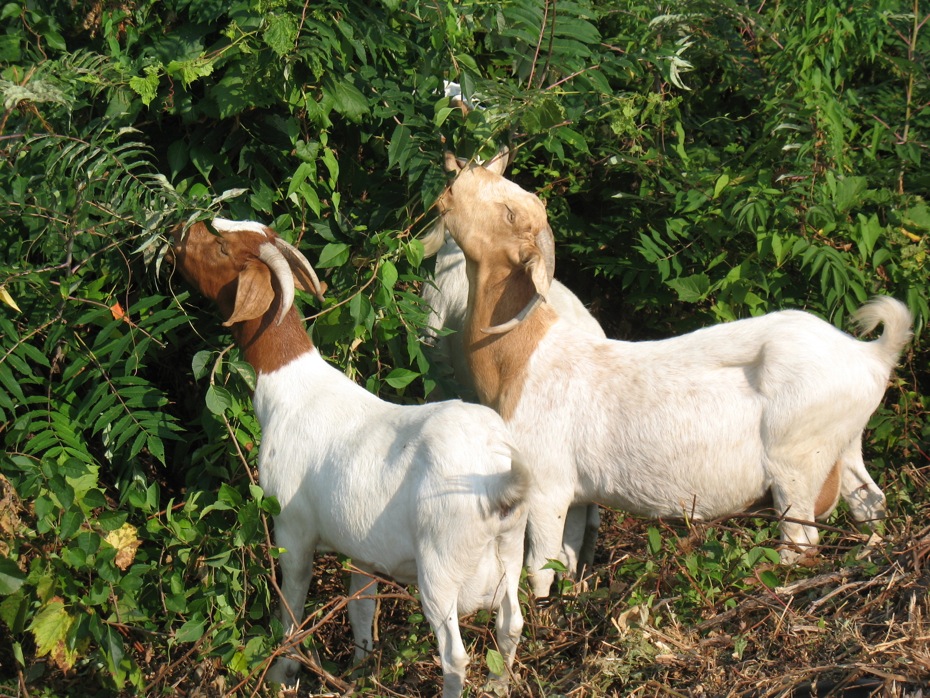
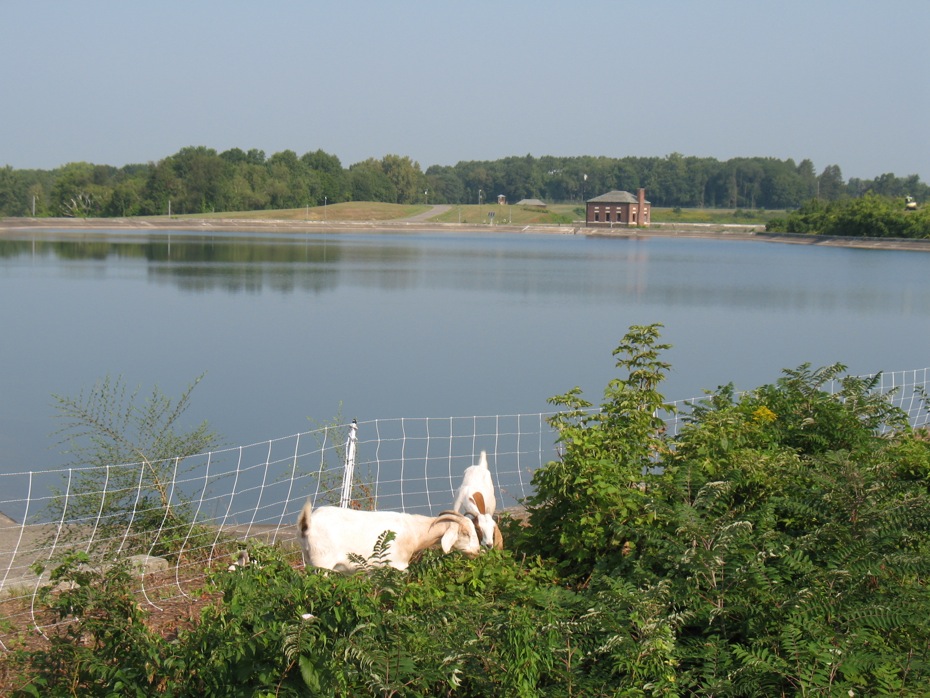
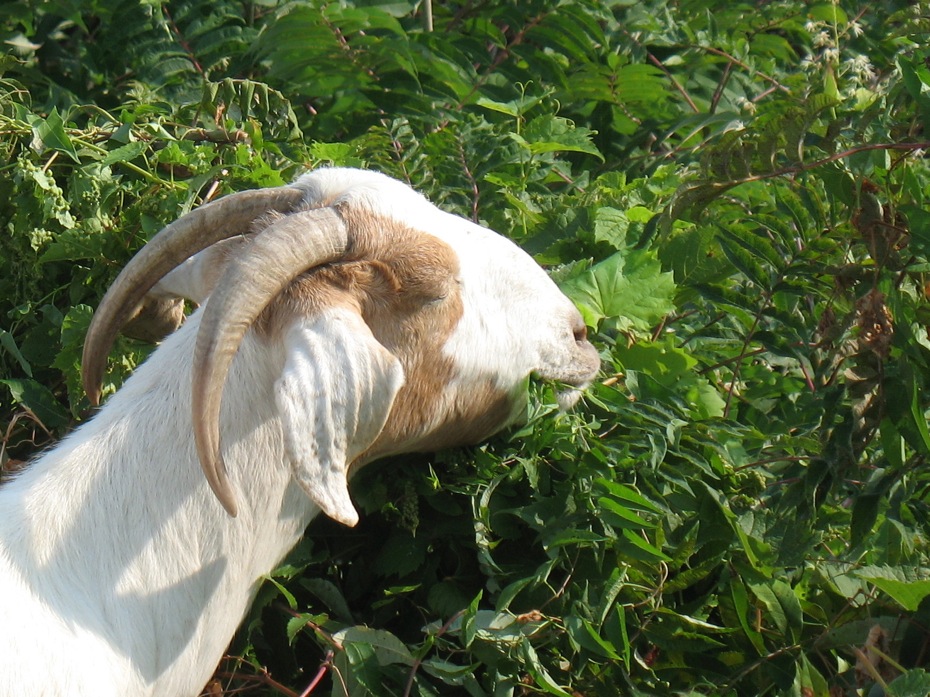
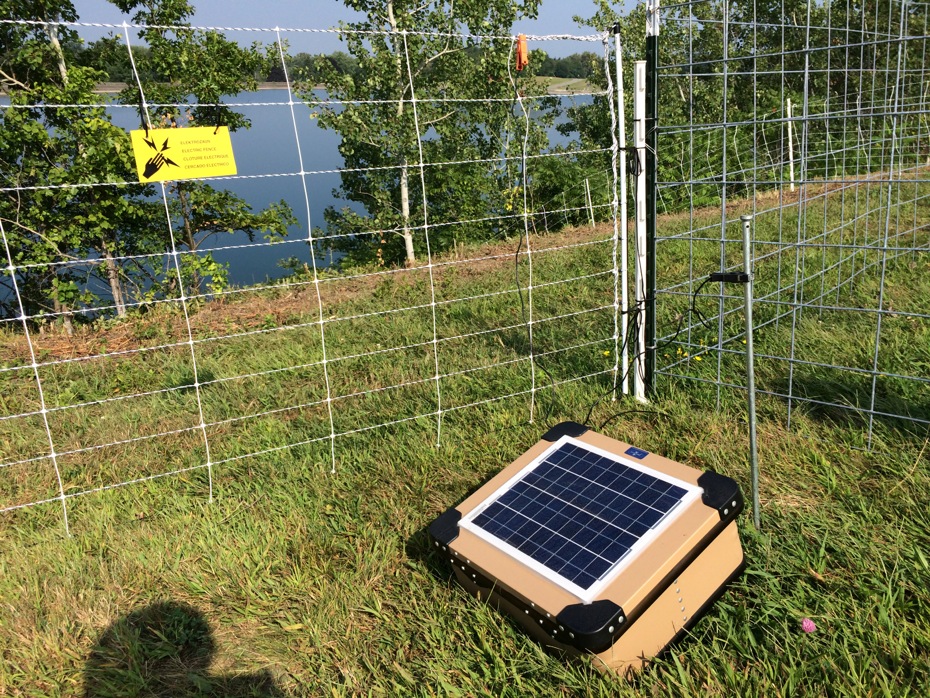
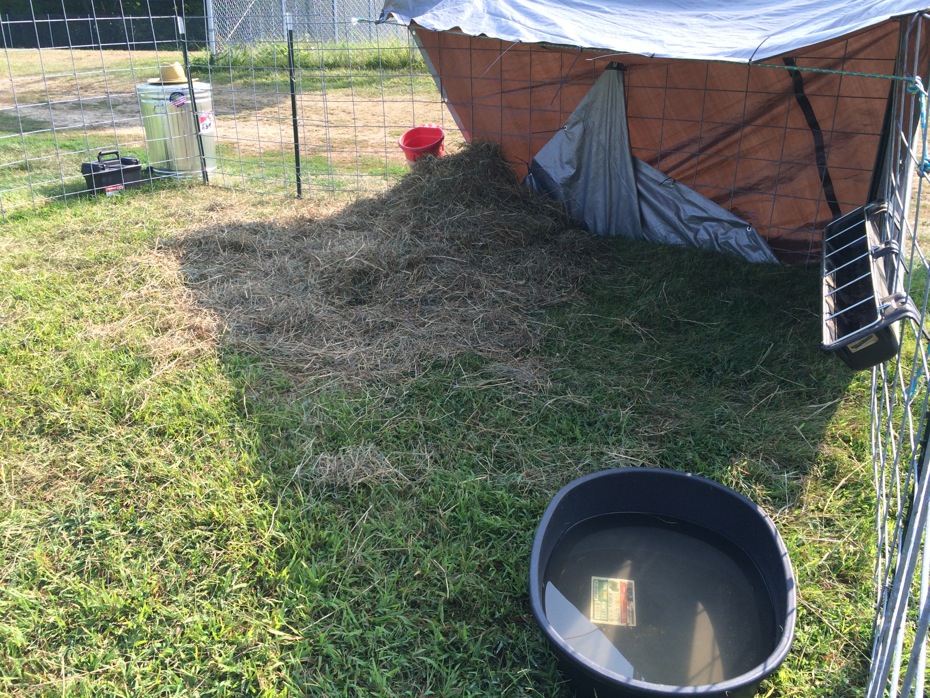
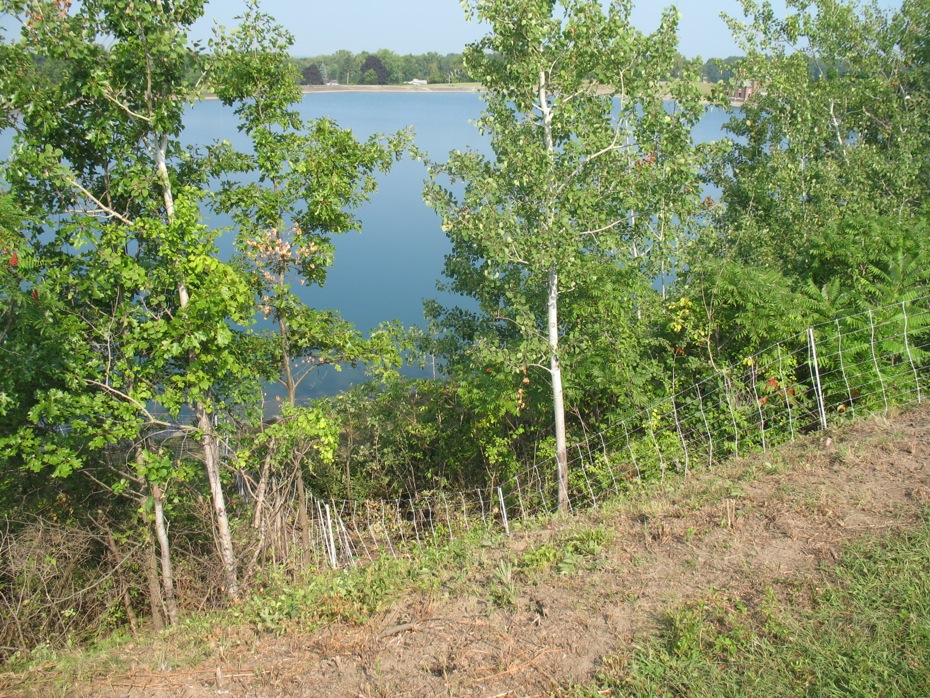
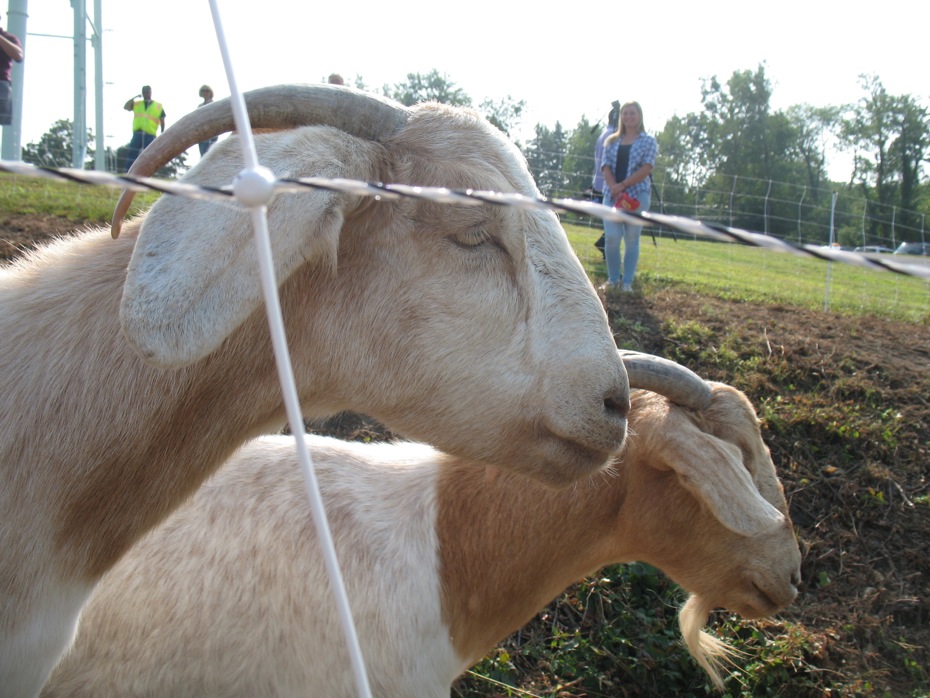
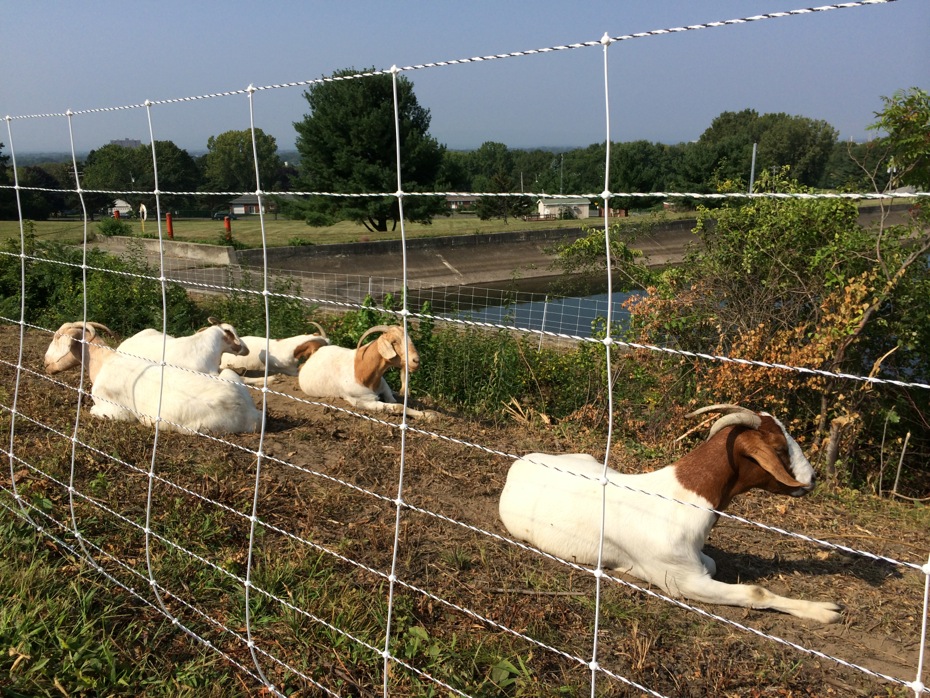

Comments
Oh, man, can I rent one of these goats for a few days to clear my back yard? Sisyphis-like, I just hauled to the curb another in the endless round of yard waste bags full of weeds, brush, and the general garden detritus that is the consequence of my summer sloth.
... said chrisck on Sep 3, 2015 at 9:40 AM | link
This is fantastic on so many levels. Please, someone set up a goat-cam so we can see Toast, Butter et al munching away.
... said Rebecca on Sep 3, 2015 at 10:13 AM | link
I love this! When I lived in Berkeley, I would see this happening all the time! There were goat farmers who would essentially lease out their goats for 3-5 days at a time. The farmers would come daily to check in on them and once the land was cleared, they would move on to the next location.
I am so glad to see a taste of west coast living and problem solving here! Cheers to whomever made this possible. This would be happening more often than we see.
... said Beckan L on Sep 3, 2015 at 10:45 AM | link
Aha! Portland had the "Foliage trimmed by Goats" FIRST!
... said Meloney Crawford on Sep 3, 2015 at 3:20 PM | link